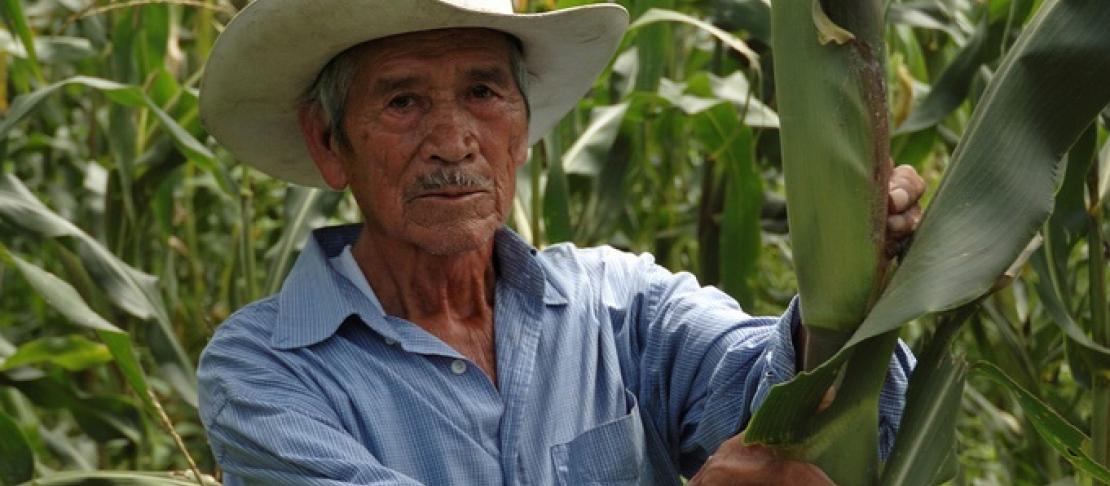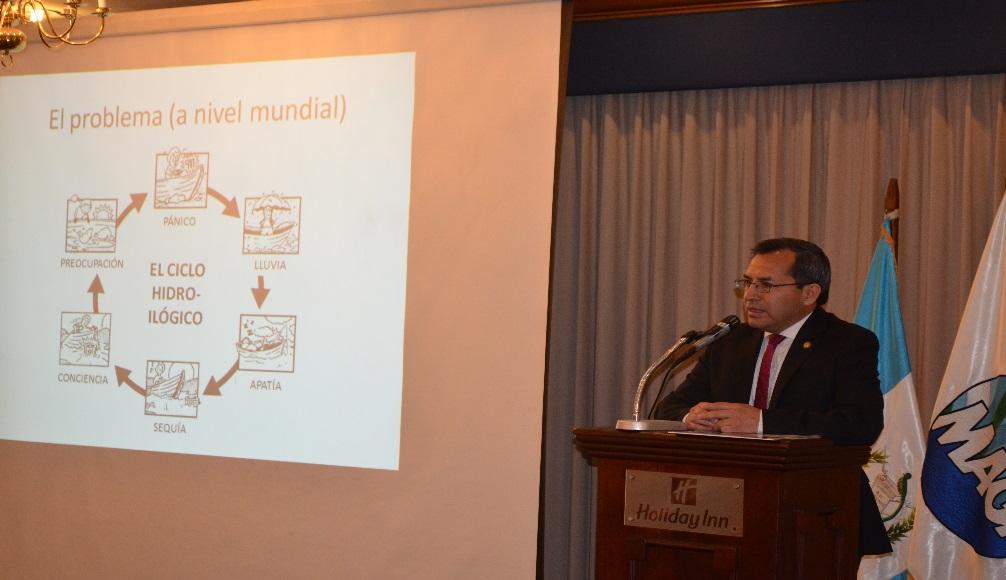New project addresses worries about drought in Guatemala

Guatemala's minister of agriculture is worried about drought. Guatemala's climate is strongly influenced by the El Niño Southern Oscillation – a kind of pendulum movement in the global climate, which swings back and forward every 2-7 years, bringing either heavy rains or drought to different parts of the globe
According to climate models, the probability of El Niño is going up, and there are concerns about how well Guatemala will cope.
Just in time to address the minister’s worries, the CGIAR Research Program on Climate Change, Agriculture and Food Security (CCAFS) recently launched a project to analyze how well Guatemala’s Ministry of Agriculture and Livestock (MAGA) will deal with extreme climatic conditions. The idea is to use the research to improve planning and decision-making through a joint learning process. During the launch of the project, Carlos Anzueto, the vice-minister of rural development, emphasized how the project would strengthen the ministry’s work by helping to create protocols to deal with agro-climatic risks.
How so? To begin with, the project will use “simulation” exercises to prepare people for future events. Like a fire drill, the simulation exercise will help spot any response problems and train government workers in the process. The goal is to avoid learning by “trial-and-error”, which has a very high cost in this case. Unlike many other natural disasters, drought is a slow onset disaster. It can be predicted using climate models, but its effect on food security creeps in unnoticed until it suddenly becomes very visible. Simulations for more sudden events, like floods, have been done before in Guatemala, but this is a first for drought simulation.

Minister Elmer López. Inaugural speech during the launch of the project. Photo: v. mora
During the launch of the project, participants from across the ministry and different parts of the country participated in a dynamic exercise to define how the drought simulation exercise should look like. Most participants did not previously know about the recently formulated drought response protocol in detail and based on their comments and ideas to improve the current system, many creative suggestions came up about the content of the simulation, including technical aspects such as involving computers to process data, as well as social aspects such as using role-play.
The project will also establish an online learning platform, where experts and practitioners can discuss their experiences and improve responses to climatic events.
The project will be led by Bioversity International, with the participation of the Tropical Agricultural Research and Higher Education Center (CATIE), the International Centre for Tropical Agriculture (CIAT), the International Research Institute for Climate and Society (IRI) and Action contre le Faim – Spain, who are collaborating intensively with the Guatemalan Ministry of Agriculture and Livestock through its Climate Change Unit. The project is being financed by CCAFS and the Inter-American Institute for Global Change Research (IAI).
In the framework of the workshop also was presented a policy brief published by CCAFS and MAGA, with the support of the Central American Agricultural Council (CAC) and CIAT. You can read the document in this link. (in spanish)
External links:
- Maga realiza taller de simulacros para el Cambio Climático
- Prensa Libre - Preparan simulacro por sequía
- CCAFS, Guatemala Publish Report on Climate and Food Security
Vesalio Mora is PhD researcher with Bioversity International and the University of Costa Rica. Jacob van Etten is a Senior Scientist at Bioversity International, leading the Climate Change Adaptation team.



